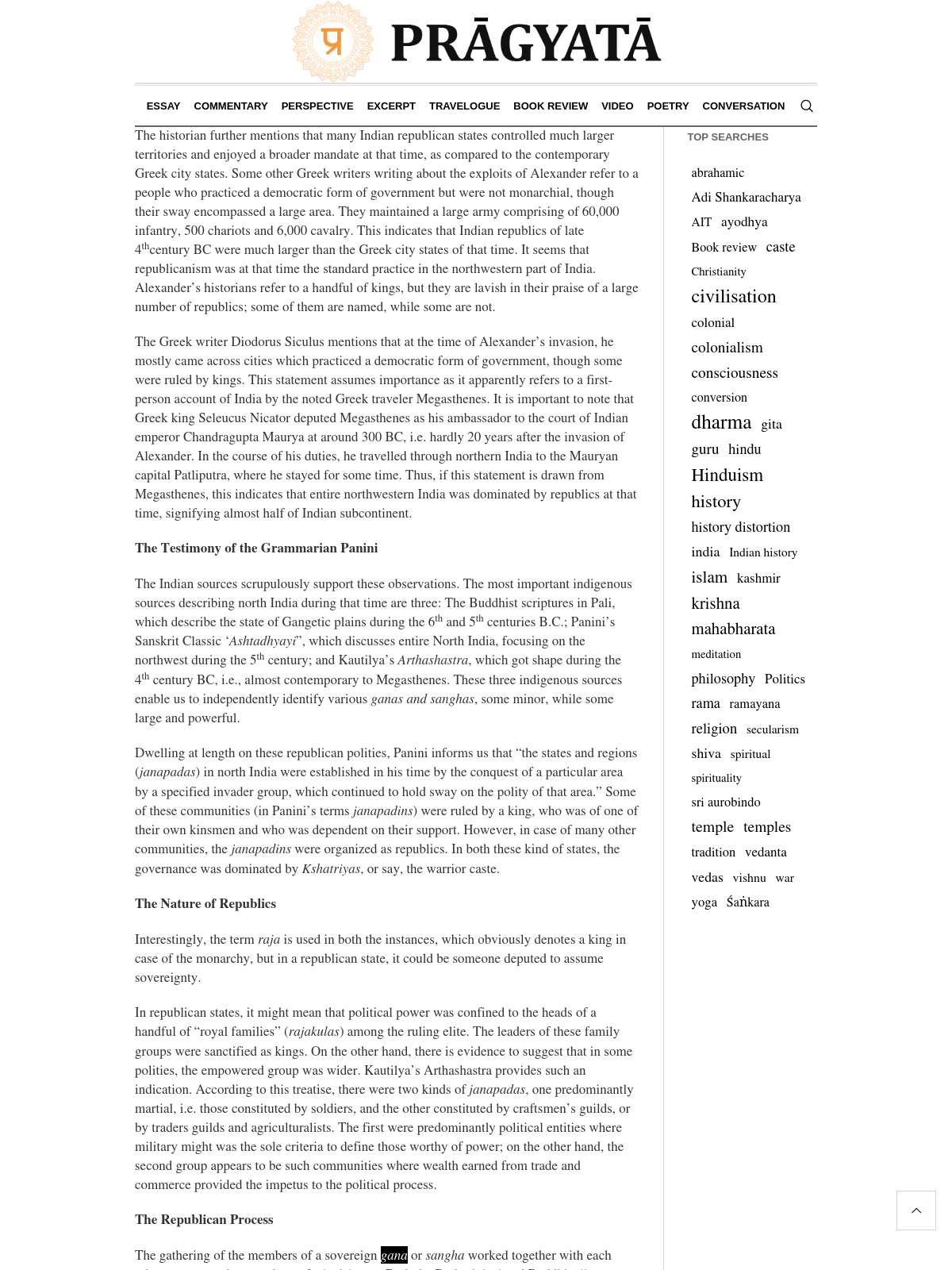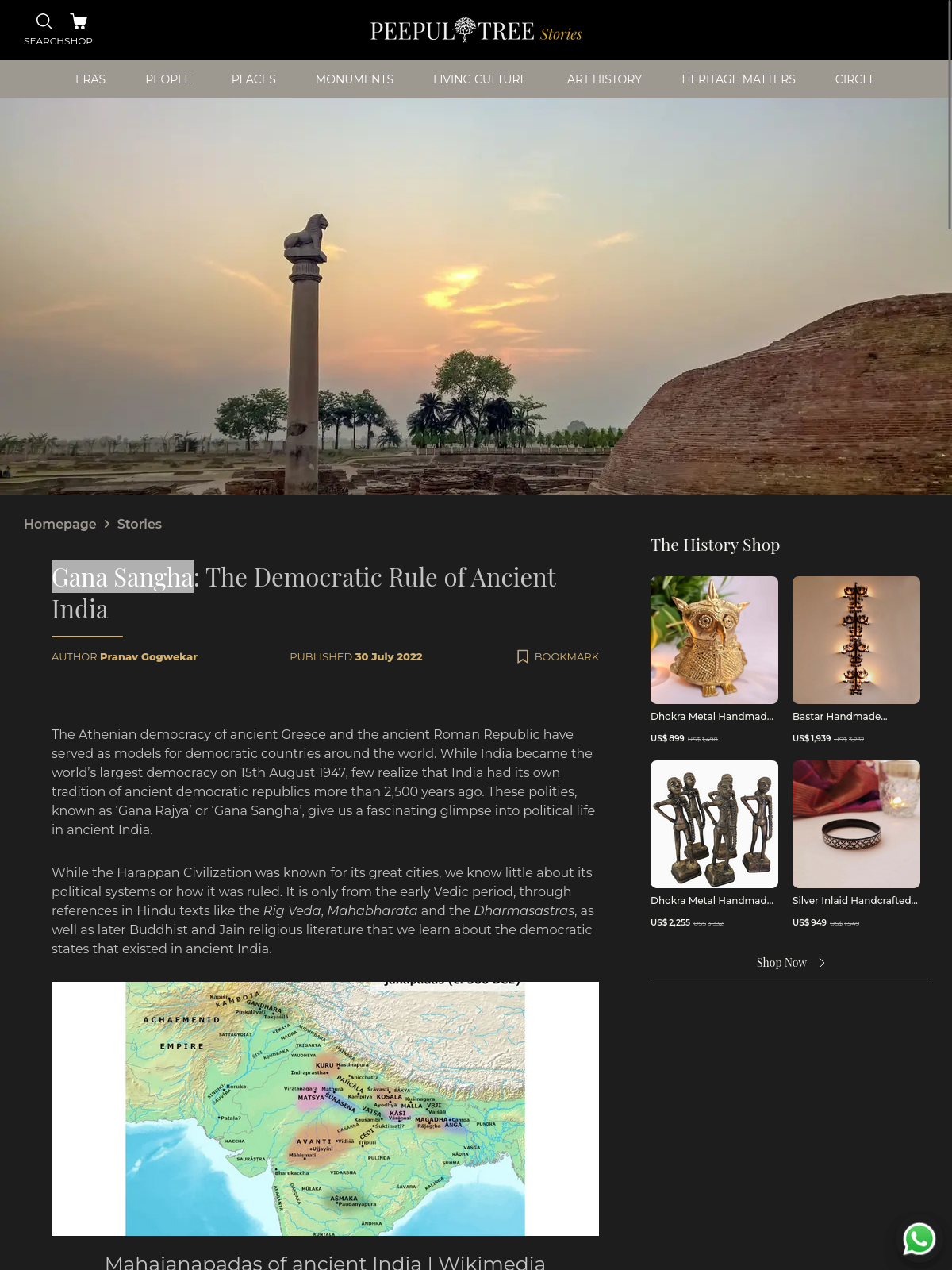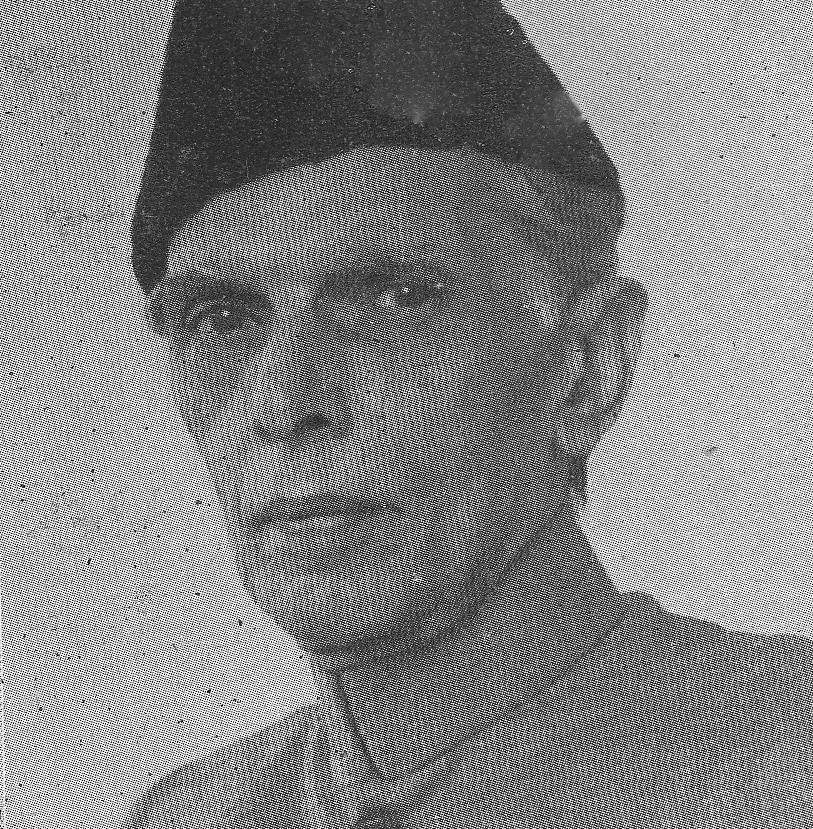Islam & Democracy
اسلام اور جمہوریت
Harmony or Conflict
Muhammad Ahmad Zafar
27th June 2024
www.aagahi.com
Islam is a Complete Way of Life (دین)
As a Religion
- Aqeedah (Creed)
- Ibadaat (Modes of Worship)
- Customs & Traditions.
As a System of Governance
- Political System.
- Ecnonmic System.
- Social System.
- Judicial System.
- Inheritance Law.
- Family Law.
Constantly Guided by the Prophets
قَالَ النَّبِيِّ صلى الله عليه وسلم « كَانَتْ بَنُو إِسْرَائِيلَ تَسُوسُهُمُ الأَنْبِيَاءُ، كُلَّمَا هَلَكَ نَبِيٌّ خَلَفَهُ نَبِيٌّ ... »
Prophet (s.a.w) said, “The Israelis used to be ruled & guided by Prophets. Whenever a Prophet died, another Prophet would take his place ...”
[Bukhari, Kitab Ahadith-al-Anbiya (60), 3455]
Allama Iqbal’s Views on Islam & Politics
جلال پادشاہی ہو کہ جمہوری تماشا ہو
جدا ہو دیں سیاست سے تو رہ جاتی ہے چنگیزی
[علامہ اقبال]
The Purpose of the Creation of Adam
وَإِذْ قَالَ رَبُّكَ لِلْمَلَائِكَةِ إِنِّي جَاعِلٌ فِي الْأَرْضِ خَلِيفَةً … ۞
“Just recall the time when your Lord said to the angels, ‘I am going to appoint a vicegerent on the Earth’ … ”
[Surah Al-Baqarah (2), 30]
Islamic System is Based on Khilafah
“The role of the Khaleefah is, simply put, to apply the Shariah, to manage the affairs of the Muslim nation,
and to take care of the needs of his people.”
[Biography of Abu Bakr As-Siddeeq by Dr. Ali Muhammad As-Sallaabee, Page 237]
“Other words that are sometimes used interachangeably for Khaleefah are ‘Imam’ and ‘Ameer’.”
[Biography of Abu Bakr As-Siddeeq by Dr. Ali Muhammad As-Sallaabee, Page 238]
Democracy & its Origins from Athens
Democracy in 599 BC India - “Gana Sangha”


King David ؑ as the Caliph
يَا دَاوُودُ إِنَّا جَعَلْنَاكَ خَلِيفَةً فِي الْأَرْضِ فَاحْكُم بَيْنَ النَّاسِ بِالْحَقِّ وَلَا تَتَّبِعِ الْهَوَىٰ فَيُضِلَّكَ عَن سَبِيلِ اللَّـهِ ۚ ... ۞
“[We said to him], ‘O David, indeed We have made you a successor and vicegerent upon the earth, so judge between the people in truth & do not follow [your own] desire, as it will lead you astray from the way of Allah.’ ... ”
[Surah Sad (38), 26]
What Exactly is a Parliament?
“From the French ‘parler’, to speak; the original sense of the word was the action of speaking, speech, conference or discussion: hence the council called by a monarch to discuss some matter of general importance.”
[The Leadership of Muhammad by John Adair, Page 29-30]
Criticism by Socrates on Democracy
The Ill of Following the Majority
وَإِن تُطِعْ أَكْثَرَ مَن فِي الْأَرْضِ يُضِلُّوكَ عَن سَبِيلِ اللَّـهِ ۚ إِن يَتَّبِعُونَ إِلَّا الظَّنَّ وَإِنْ هُمْ إِلَّا يَخْرُصُونَ ۞
اگر تم اُن لوگوں کی اکثریت کے کہنے پر چلو جو زمین میں بستے ہیں تو وہ تمہیں اللہ کے راستہ سے بھٹکا دیں گے وہ تو محض گمان پر چلتے اور قیاس آرائیاں کرتے ہیں۔
[Surah Al-Anaam (6), 116]
Islamic Criticism on Democracy
Allama Iqbal’s Views on Democracy
جمہوریت اک طرز حکومت ہے کہ جس میں
بندوں کو گنا کرتے ہیں تولا نہیں کرتے
[علامہ اقبال، ضرب کلیم]
How the People Reverted After This
وَرَأَيْتَ النَّاسَ يَدْخُلُونَ فِي دِينِ اللَّـهِ أَفْوَاجًا ۞
اور آپ دیکھ لیں کہ لوگ فوج در فوج اللہ کے دین میں داخل ہو رہے ہیں
[Surah An-Nasr (110), 2]
Secular Democracy can lead to Shirk
اتَّخَذُوا أَحْبَارَهُمْ وَرُهْبَانَهُمْ أَرْبَابًا مِّن دُونِ اللَّـهِ وَالْمَسِيحَ ابْنَ مَرْيَمَ وَمَا أُمِرُوا إِلَّا لِيَعْبُدُوا إِلَـٰهًا وَاحِدًا ۖ لَّا إِلَـٰهَ إِلَّا هُوَ ۚ سُبْحَانَهُ عَمَّا يُشْرِكُونَ ۞
[Surah At-Taubah (9), 31]
Hadith of Adi bin Hatim (r.a) as mentioned in Tafseer ibn Katheer
Allah, His Messenger & Those In Authority
يَا أَيُّهَا الَّذِينَ آمَنُوا أَطِيعُوا اللَّـهَ وَأَطِيعُوا الرَّسُولَ وَأُولِي الْأَمْرِ مِنكُمْ ۖ فَإِن تَنَازَعْتُمْ فِي شَيْءٍ فَرُدُّوهُ إِلَى اللَّـهِ وَالرَّسُولِ إِن كُنتُمْ تُؤْمِنُونَ بِاللَّـهِ وَالْيَوْمِ الْآخِرِ ۚ ذَٰلِكَ خَيْرٌ وَأَحْسَنُ تَأْوِيلًا ۞
[Surah An-Nisa (4), 59]
What Does Obedience to the Ameer Means?
It was narrated from Ibn 'Umar that the Prophet (s.a.w) said, “The Muslim must hear and obey, whether he likes it or not, unless he is commanded to commit a sin; if he is commanded to commit a sin, then there is no hearing and no obeying.”
[Muslim, Kitab al-Emarah (33), 4763]
Abu Bakr’s Address as Khaleefah
“... O people, I have indeed been appointed over you, though I am not the best among you. If I do well, then help me; and if I act wrongly, then correct me ... Obey me so long as I obey Allah and His Messenger. And if I disobey Allah and His Messenger, then I have no right to your obedience ...”
[Biography of Abu Bakr As-Siddeeq by Dr. Ali Muhammad As-Sallaabee, Page 246]
Umar’s Address as Khaleefah
Umar stood up & delivered a speech in which he said, “O people, whoever among you sees any crookedness in me, let him straighten it.” A man stood up and said, “By Allah, if we see any crookedness in you, we will straighten it with our swords.” Umar said, “Praise be to Allah Who has put in this ummah people who will straighten the crookedness of Umar with their swords.”
[Biography of Umar ibn al-Khattab by Dr. Ali Muhammad As-Sallaabee, Vol 1, Page 213]
The Only Direct Order of Governance According to Nauman Ali Khan
الَّذِينَ إِن مَّكَّنَّاهُمْ فِي الْأَرْضِ أَقَامُوا الصَّلَاةَ وَآتَوُا الزَّكَاةَ وَأَمَرُوا بِالْمَعْرُوفِ وَنَهَوْا عَنِ الْمُنكَرِ ۗ وَلِلَّـهِ عَاقِبَةُ الْأُمُورِ ۞
[Surah Al-Hajj (22), 41]
Islamic Principle of Consultation
… أَمْرُهُمْ شُورَىٰ بَيْنَهُمْ … ۞
... and whose rule [in all matters of common concern] is consultation among themselves ...
[Surah As-Shurah (42), 38]
The Example of a Believer in a Hadith
عَنْ أَبِي سَعِيدٍ الْخُدْرِيِّ عَنْ النَّبِيِّ صَلَّى اللَّهُ عَلَيْهِ وَسَلَّمَ أَنَّهُ قَالَ « مَثَلُ الْمُؤْمِنِ كَمَثَلِ الْفَرَسِ عَلَى آخِيَّتِهِ يَجُولُ ثُمَّ يَرْجِعُ إِلَى آخِيَّتِهِ وَإِنَّ الْمُؤْمِنَ يَسْهُو ثُمَّ يَرْجِعُ إِلَى الْإِيمَانِ »
ابو سعید خدری رضی اللہ عنہ سے روایت ہے کہ نبیﷺنے فرمایا، مومن کی مثال گھوڑے کی مانند ہے جو رسی کے ساتھ باندھا ہوا ہے وہ پھرتا رہتا ہے اور آخر میں اپنے باندھنے کی جگہ واپس لوٹتا ہے ، اور مومن بھی غلطی کرتا ہے پھر ایمان کی طرف واپس لوٹتا ہے۔
[Musnad Ahmad, 11335] (Daeef)
Quranic Guidance to Remain in Limits
يَا أَيُّهَا الَّذِينَ آمَنُوا لَا تُقَدِّمُوا بَيْنَ يَدَيِ اللَّـهِ وَرَسُولِهِ ۖ وَاتَّقُوا اللَّـهَ ۚ إِنَّ اللَّـهَ سَمِيعٌ عَلِيمٌ ۞
“Believers! Do not advance before Allah and His Messenger, and fear Allah. Verily Allah is All-Hearing, All-Knowing.”
[Surah Al-Hujarat (49), 1]
Importance of Consent of All Muslims
… فَمَنْ بَايَعَ رَجُلاً عَلَى غَيْرِ مَشُورَةٍ مِنَ الْمُسْلِمِينَ فَلاَ يُتَابَعُ هُوَ وَلاَ الَّذِي بَايَعَهُ تَغِرَّةً أَنْ يُقْتَلاَ
“… So if any person gives the Pledge of allegiance to somebody without consulting the other Muslims, then the one he has selected should not be granted allegiance, lest both of them should be killed.”
[Bukhari, Kitab al-Hadood (86), 6832]
Islam on Candidacy (1)
Narrated by Abu Dharr (r.a), “I said, ‘O Messenger of Allah, will you not appoint me (to a position of authority)?’ He struck me on the shoulder with his hand and said, ‘O Abu Dharr, you are weak, and it is a trust, and on the Day of Resurrection it will be a source of humiliation and regret, except for the one who takes it and fulfils all obligations and does all duties required.’”
[Muslim, Kitab al-Emarah (33), 4719]
Islam on Candidacy (2)
عَنْ عُثْمَانَ بْنِ أَبِي الْعَاصِ، قَالَ قُلْتُ … يَا رَسُولَ اللَّهِ اجْعَلْنِي إِمَامَ قَوْمِي. قَالَ « أَنْتَ إِمَامُهُمْ وَاقْتَدِ بِأَضْعَفِهِمْ وَاتَّخِذْ مُؤَذِّنًا لاَ يَأْخُذُ عَلَى أَذَانِهِ أَجْرًا »
Narrated by Uthman ibn Abu Al-Aas ... “O Messenger of Allah! Make me the leader of my people.” He (s.a.w) said, “You are their leader, but you should follow on who is the weakest of them. Appoint a Muadhdhin who does not charge for the calling of adhan.”
[Abu Dawood, Kitab Al-Salah (2), 531] (Sahih)
Hadith on Killing Fellow Muslims
عَنْ ابْنِ عُمَرَ أَنَّ النَّبِيَّ صَلَّى اللَّهُ عَلَيْهِ وَسَلَّمَ قَالَ « مَنْ حَمَلَ عَلَيْنَا السِّلَاحَ فَلَيْسَ مِنَّا »
[Muslim, Kitab Al-Imaan (1), 280]
عَنْ إِيَاسِ بْنِ سَلَمَةَ عَنْ أَبِيهِ عَنْ النَّبِيِّ صَلَّى اللَّهُ عَلَيْهِ وَسَلَّمَ قَالَ « مَنْ سَلَّ عَلَيْنَا السَّيْفَ فَلَيْسَ مِنَّا »
[Muslim, Kitab Al-Imaan (1), 281]
The Case of Pakistan
“If Jinnah’s aim was to create a ‘secular’ state then there was no justification in withdrawing Muslims from India.”
Justice Dr. Javaid Iqbal, Son of Allama Iqbal
Islam & Pakistan’s Identity, Page 309
Quaid-e-Azam on Islamic Democracy
“Let us lay the foundations of our democracy on the basis of truly Islamic ideals and principles. Our Almighty has taught us that our decisions in the affairs of the state shall be guided by discussion and consultation.”

Draft Constitution by Hizb-ut-Tahrir (1)
Article 1
“The Islamic ‘Aqeeda constitutes the foundation of the State. Therefore, nothing is permitted to exist in the State’s structure, system, accountability, or any other aspect connected with the State that does not take the Islamic ‘Aqeeda ...”
Article 6
“All citizens will be treated equally regardless of their religion, race, color or any other factor. The State will not discriminate between citizens in any matter, such as ruling, judiciary or welfare.”
Article 21
“Muslims have the right to establish political parties ...”
Draft Constitution by Hizb-ut-Tahrir (2)
Article 26
“Every sane Muslim of legal age, male or female, has the right to elect the Khalifah ...”
Article 102
“The members of Majlis al-Ummah are elected by the people.”
Article 103
“Every citizen has the right to become a member of Majlis al-Ummah, provided he/she is mature and sane; this applies to Muslim and non-Muslim, man or woman ...”
[The Islamic State by Taqiuddin an-Nabhani]
Dr Israr Ahmad’s Views on Allegiance
When he was asked whether the public give allegiance to the President or Prime Minister in a Khilafah State?
“... I think the Constitution will become the basis of the Ba’yah (Allegiance) ...”
[My Personal Meeting on 17th February 2010]
“In fact, human ingenuity has not evolved a better method for corporate decisions than the majority principle. No doubt, a majority can err, but so can a minority. From whatever angle we view the matter, the fallibility of the human mind makes the committing of errors an inescapable factor of human life, and so we have no choice but to learn through trial and error and subsequent correction.”

[The Principles of State & Government in Islam by Muhammad Asad (Leopold Weiss), 50]

Email: MAhmadZ@pm.me
YouTube: @MAhmadZ
Twitter: @MAhmadZ
Telegram: @MAhmadZ
Soundcloud: @MAhmadZ
LinkedIn: @MAhmadZ
For the full video & other beneficial topics, visit:

YouTube: @MAhmadZ
Twitter: @MAhmadZ
Telegram: @MAhmadZ
Soundcloud: @MAhmadZ
LinkedIn: @MAhmadZ
Email: MAhmadZ@pm.me